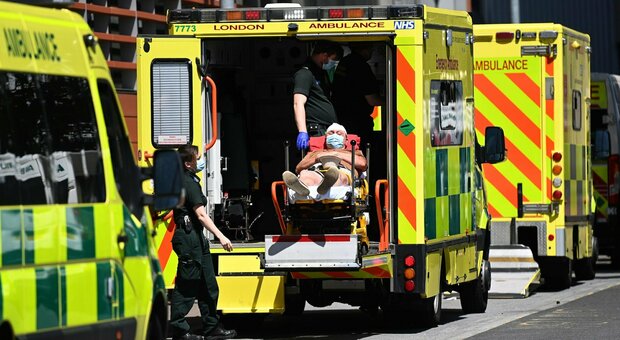The long-awaited Freedom Day, the day Britons will finally be able to free themselves from the restrictions imposed with Covid, has been postponed. The UK authorities have, in fact, announced, through Prime Minister Boris Johnson, the postponement of the main easing measures from the lockdown system in place in England: they were postponed for almost a month, from the date set in recent weeks, June 21, until July 19. “We need more time, to give the NHS (National Health Authority, editor) a few more weeks to give vaccinations to those in need,” the Prime Minister said at a press conference in Downing Street.
It will reopen in the yellow zone, tomorrow is suitable for celebrations, exhibitions and parks in 8 zones. Here’s what changes
For Johnson, a return to normal is essential, because the prevalence of the delta variant is concerning: cases in England are growing at about 64% per week, and hospitalizations, including those in intensive care, are on the rise. He admits: “Covid cannot simply be eliminated, we have to live with it.” The hope is that this postponement will suffice. Restrictions on the number of people entering bars, restaurants, cinemas and sporting events after the previous reopening at the end of May remain in place. While discos and nightclubs remain closed. The reference to working from home is also always valid for those who can do so. The decision – which was predicted by the media over the weekend – sparked quite a few controversies, first of all among some Conservative MPs who, as in the case of Marcus Fisch, used very strong words in defining the government’s position as “disastrous and unacceptable”. The mayor, Sir Lindsay Hoyle, who has attacked Downing Street for failing to inform parliamentarians of the latest coronavirus decisions, is also critical. An outcry has also been raised from the business world, particularly the restaurant and entertainment sectors, who fear prolonging the prolonged crisis caused by the pandemic.
AstraZeneca, EMA Specifies: “Remains Certified for Everyone, Even Those Under 60”
However, scientists have been very clear in recommending a delay: the coronavirus mutation that came from India is up to 60% more transmissible than the alleged English (or alpha) strain. Not only that: It doubles the number of patients in the hospital. It is therefore necessary to wait another month to increase the number of people vaccinated with two doses. Over 71 million doses have been given in the UK so far (41.6 million people received the first, 30 million also the second) but despite this, the delta variant has caused a gradual and alarming increase in infections: 7,742 in the past. While three deaths were recorded. According to a study published in the Lancet, two doses of the vaccine are needed to obtain strong protection against the Indian strain, although it is less than that obtained against the English variant. For the Pfizer-BioNTech vaccine, there is talk of 79% coverage against delta variableCompared to 92% against the alpha strain. While for AstraZeneca, the protection is 60%, compared to 73% on the English variant. Among the reasons for this sudden spread can be various symptoms, compared to other variants, represented by headache, headache and runny nose. “It could very much be mistaken for a bad cold,” said Professor Tim Spector, head of the project called Zoe Covid Symptom. People with delta variant may initially think they have had a simple cold and this would prompt them to leave anyway, thus spreading the infection..

Friendly alcohol advocate. Future teen idol. Beer aficionado. Amateur music fanatic. Food guru.

